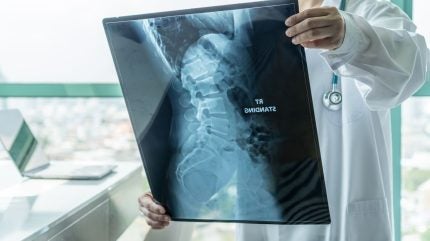
Roche has announced five-year findings from the open-label extension portion of the FIREFISH study, where Evrysdi (risdiplam) offered sustained efficacy and safety in children with type 1 spinal muscular atrophy (SMA).
The open-label extension of the pivotal trial has shown significant and lasting benefits for infants treated with the medication.

Discover B2B Marketing That Performs
Combine business intelligence and editorial excellence to reach engaged professionals across 36 leading media platforms.
In a two-part, open-label trial, FIREFISH enrolled infants aged nearly 5.5 months.
After five years, 91% of the children who received Evrysdi were alive, and 81% were alive without requiring permanent ventilation.
Notably, 59% could sit without support for at least 30 seconds.
Furthermore, seven children could stand, with four doing so unaided, and six were able to walk with support.

US Tariffs are shifting - will you react or anticipate?
Don’t let policy changes catch you off guard. Stay proactive with real-time data and expert analysis.
By GlobalDataResults also indicated that motor functions were either maintained or continued to improve in children receiving Evrysdi.
Additionally, most children preserved their ability to feed and swallow, with 96% able to swallow and 80% able to feed without a feeding tube at the five-year mark.
No treatment-related adverse events (AEs) led to discontinuation or withdrawal from the study. The overall rate of AEs decreased by 66% from year one to the final year.
Upper respiratory tract infections, fever and pneumonia were the most common AEs.
Hospitalisations also declined over the five-year treatment period, with 22% of children not requiring hospitalisation at all since starting Evrysdi.
The company is spearheading the clinical development of Evrysdi in partnership with the SMA Foundation and PTC Therapeutics.
Roche Global Product Development head and chief medical officer Levi Garraway said: “This is the final readout of the FIREFISH study, which has provided a wealth of insights and data, helping to firmly establish Evrysdi as an important treatment option, improving the lives of children across the globe living with SMA.
“This would not have been possible without the commitment and dedication of the children and families who participated, as well as numerous healthcare professionals and patient support organisations to whom we are immensely thankful.”
In April 2024, Roche reported data from the Phase III OCARINA II study of subcutaneous OCREVUS (ocrelizumab) in individuals with relapsing or primary progressive multiple sclerosis (RMS or PPMS).





